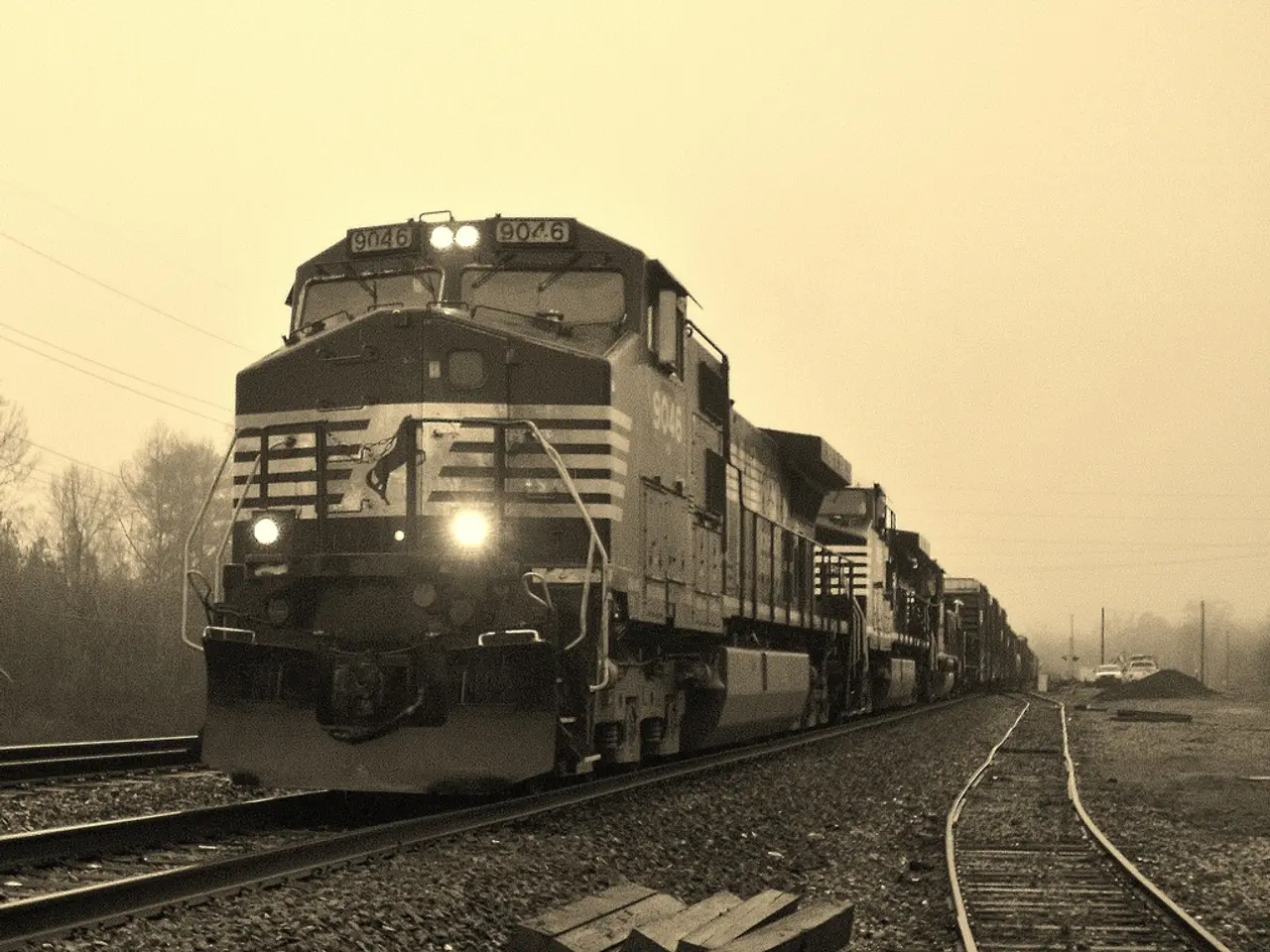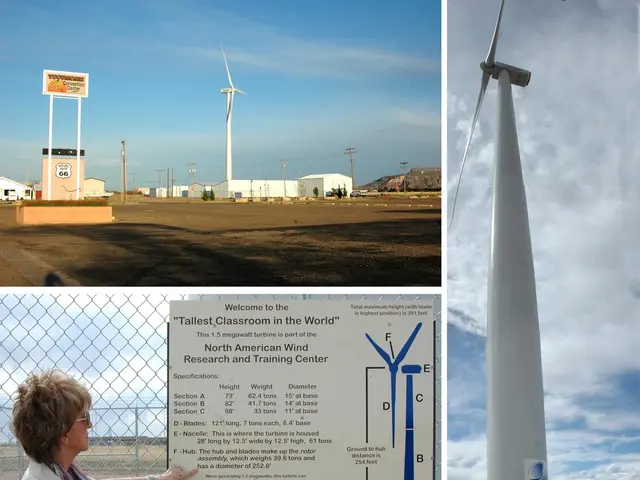Increased Delays Persist in Rhine-Main Railway Services - Declining Punctuality Persists in Rhine-Main Railway Sector
In the densely populated Rhine-Main region of Germany, punctuality in rail traffic, particularly for S-Bahns and regional trains, has been on a downward trend this year, despite improvements in staffing and the availability of train personnel.
The average reliability of regional trains has decreased from 91.1% to 89.0%, while the punctuality of local transport on the Riedbahn improved to 81% in early June 2025, compared to 68% a year earlier. The S-Bahn Rhine-Main trains have also seen a decrease in punctuality, with the average reliability dropping from 90.4% to 89.8%.
One of the primary reasons for this decline is the ongoing heatwave in Germany, with temperatures reaching up to 40°C. This extreme heat has led to significant disruptions in rail services, causing delays and cancellations. The heatwave compromises the reliability of critical rail infrastructure, contributing to a decline in punctuality.
Another significant issue is the aging rail infrastructure in Germany. Frequent minor repairs are necessary to address recurring problems, which can lead to delays and a decrease in overall punctuality.
Deutsche Bahn has implemented AI technologies to improve punctuality, such as the AI dispatcher tool used in Stuttgart. However, these efforts are not yet fully scaled across the entire network. The AI system has shown promising results, but its broader rollout is pending safety approvals and scalability.
Plans for modernization and construction on over 40 key routes are underway. However, these projects are extensive and will take time to complete, meaning that punctuality issues may persist until these upgrades are finished.
The operational complexity of the Rhine-Main area, a densely populated and heavily trafficked region, also contributes to delays and reduced punctuality. Congestion on rail lines can exacerbate delays, particularly during peak hours.
Besides the heatwave, other weather conditions or unexpected events can impact rail operations, further contributing to delays. For instance, the railway tunnel between Frankfurt and Offenbach is currently closed for construction during the summer holidays, affecting the S1 and 2 lines, as well as S8 and S9.
However, it's not all bad news. The Riedbahn between Frankfurt and Mannheim, which underwent a comprehensive overhaul last year, has seen a significant reduction in infrastructure-related disruptions. The S3 line, having a shorter route and running on S-Bahn-owned tracks, has performed above average.
In conclusion, while AI and staffing improvements are positive steps, the combination of environmental challenges, infrastructure issues, and operational complexities continues to affect punctuality in Rhine-Main rail traffic. The region's residents and commuters can expect these issues to persist until the modernization projects are completed and the impacts of the ongoing heatwave subside.
- To alleviate the ongoing issues with rail traffic punctuality, consider implementing regular vocational training for rail personnel to enhance their skills in operating under extreme weather conditions and maintaining rail infrastructure, particularly in the context of aging rail systems.
- In an attempt to boost the financial stability of the rail industry amidst the challenges of punctuality, it might be beneficial to explore transportation funding models that support improvements in infrastructure, technology, and staff training, as well as incentivize on-time performance.




